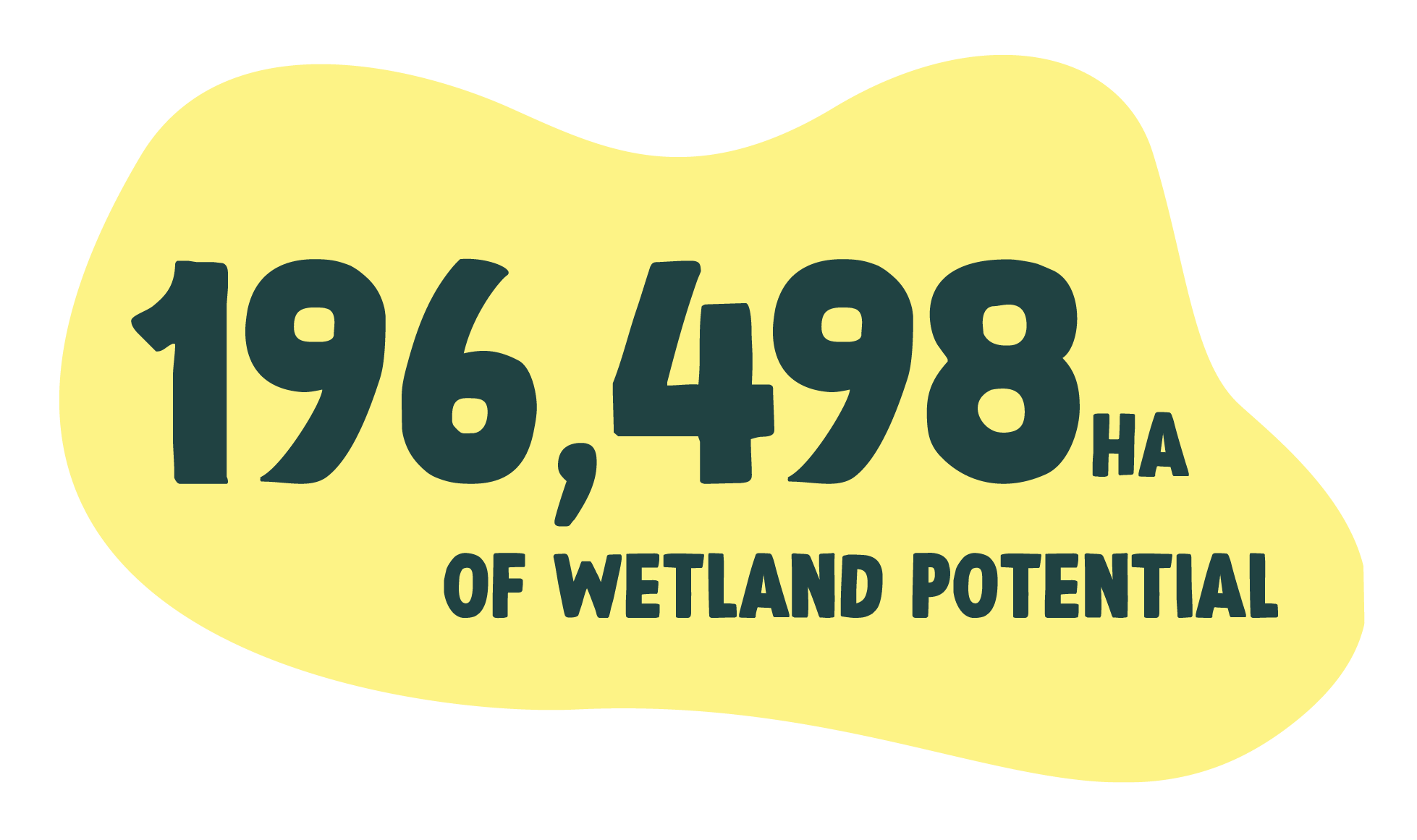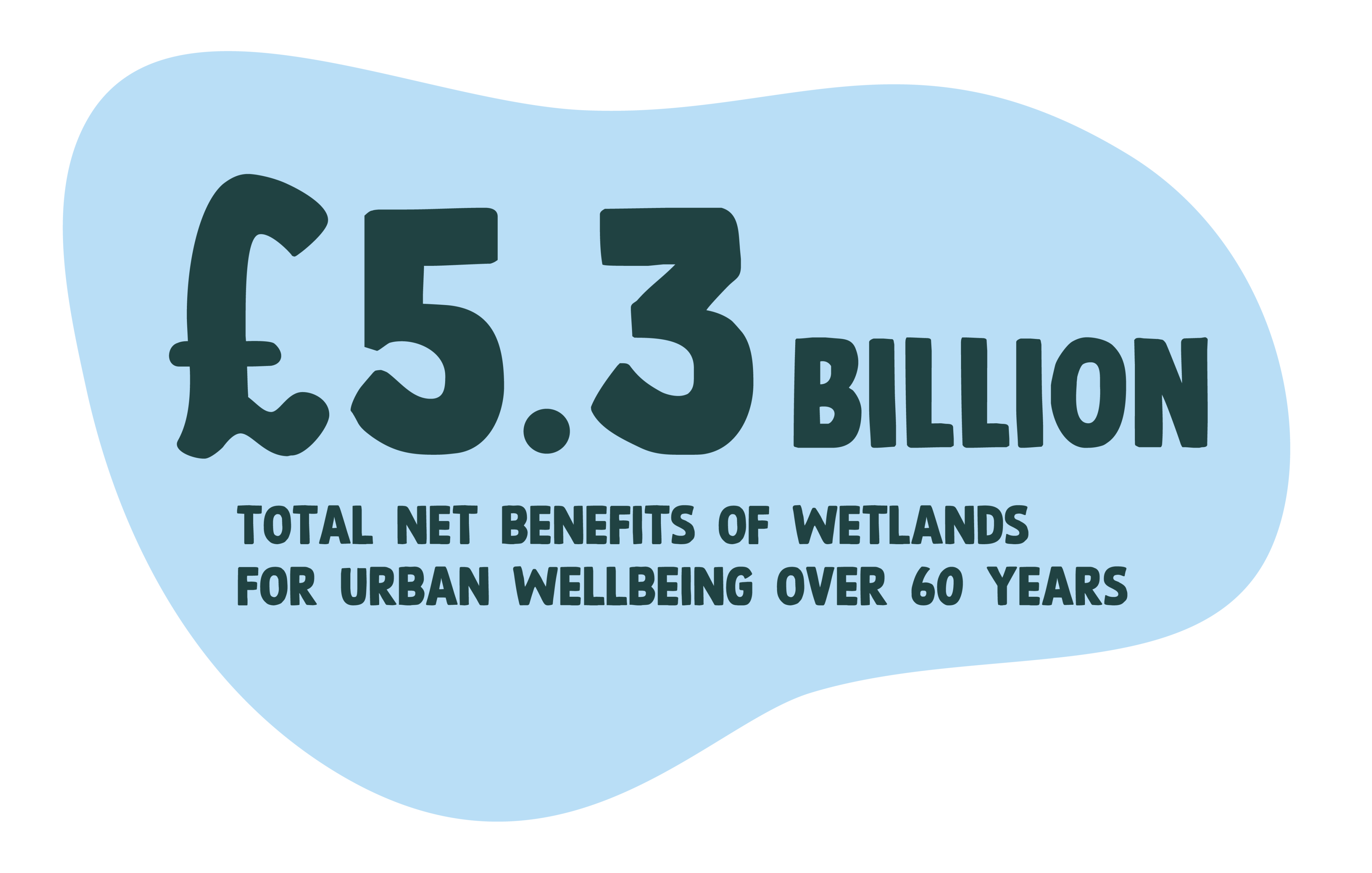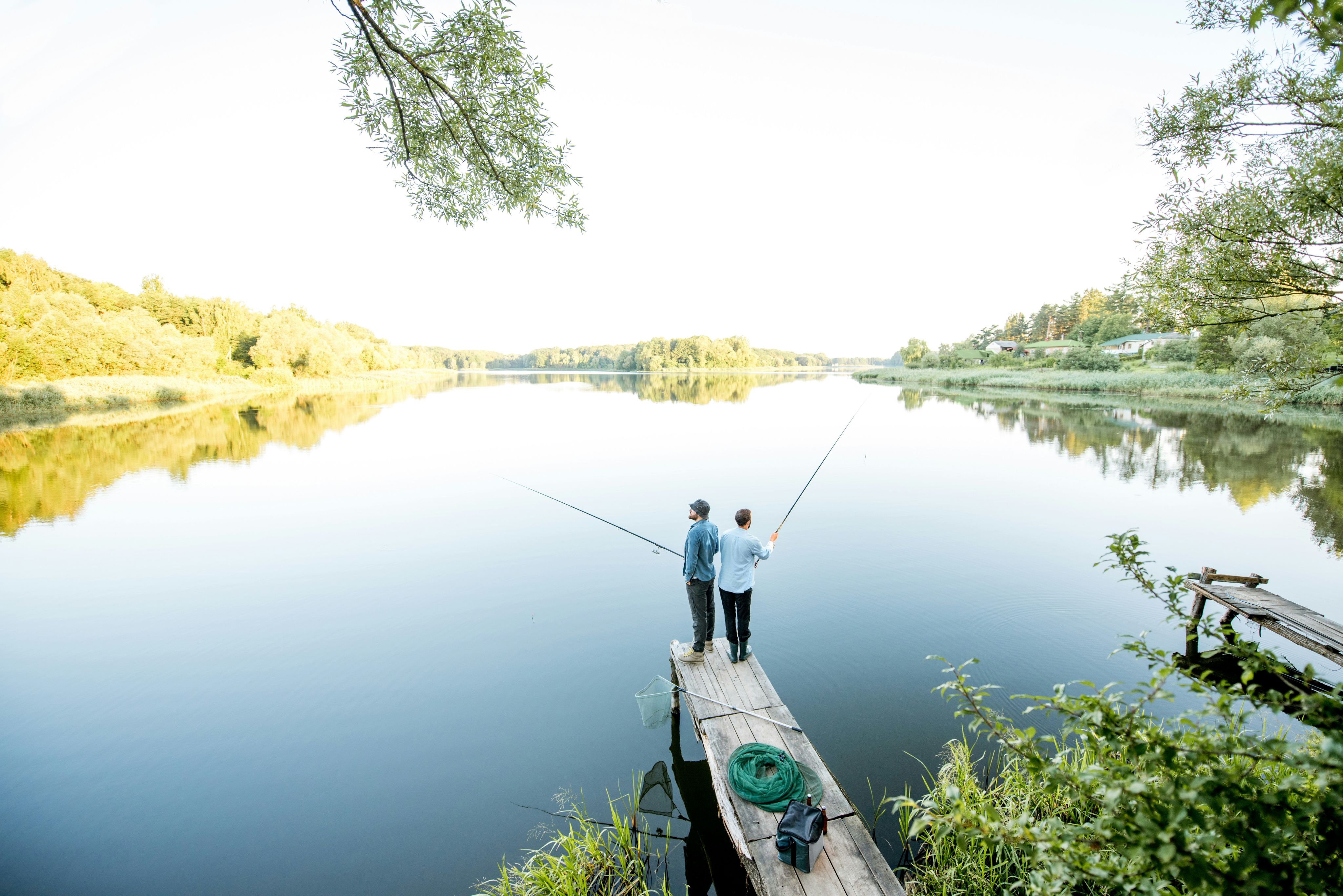Tackling the wellbeing crisis with wetlands

The uk faces a wellbeing crisis
It is one of our greatest societal concerns and places a huge economic burden on our health and social care service. Poor mental health has reached alarming proportions. In 2018, 40% of all GP appointments were attributed to the issue.

Despite the complexity of mental health challenges, there is a growing recognition of the therapeutic benefits of nature. According to the Mental Health Foundation, 70% of UK adults believe that proximity to nature-rich spaces improves their mood, while nearly half report that it helps them cope with stress.
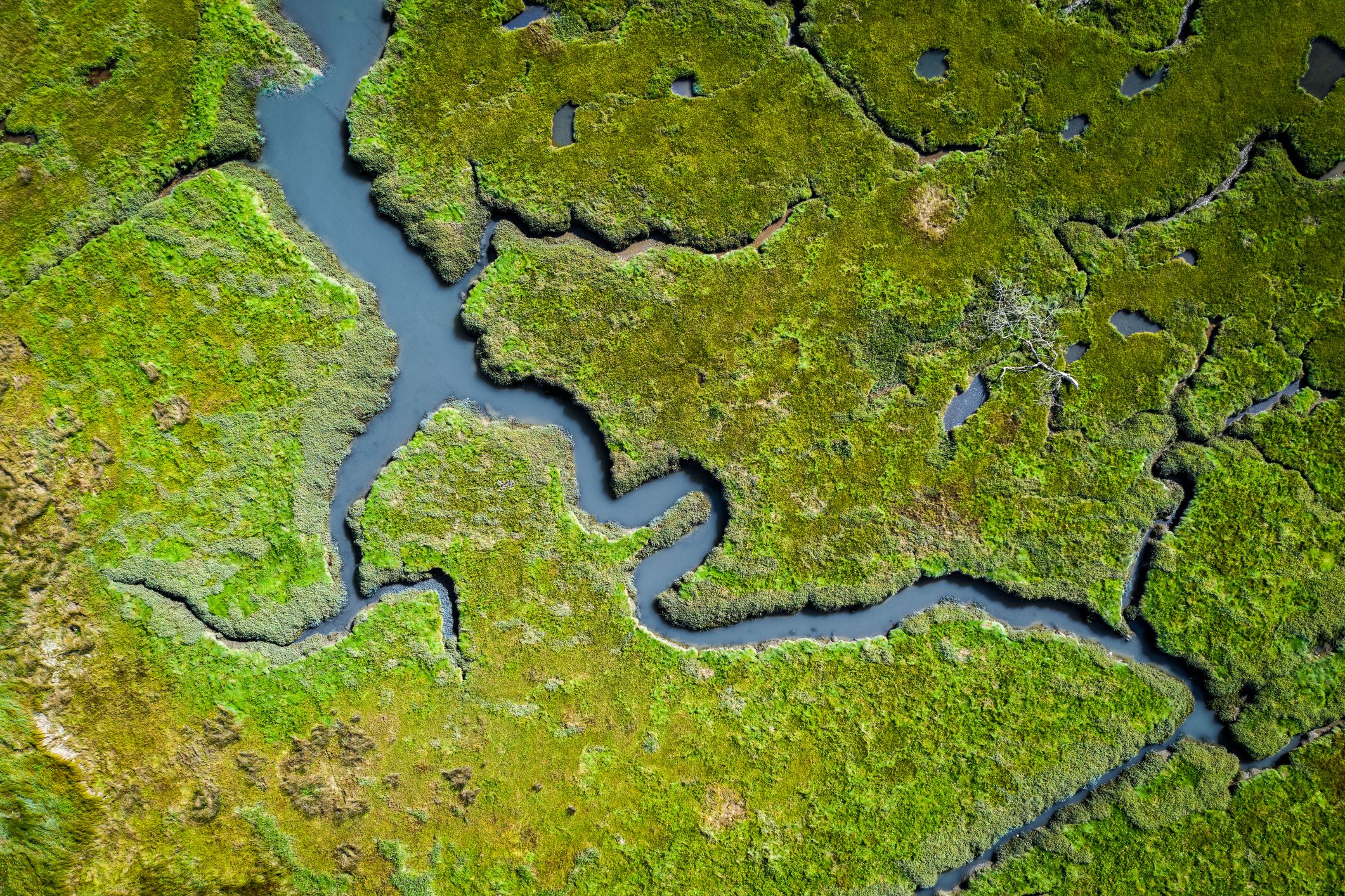
nature access for all
In some urban areas, access to nature has become a luxury not a right. In the UK’s 200 most disadvantaged neighbourhoods, only 3% of residents have access to green space within a 15-minute walk. The destruction and degradation of wetlands in urban areas exacerbate this inequitable access to nature.
Working across departments and in partnership with others, the government should prioritise opportunities to increase the amount of natural space in urban areas, for the benefit of local communities. Installing sustainable urban drainage systems (SuDS) for example, can build resilience to flooding and improve water quality, while offering a blue space that will benefit people’s health and wellbeing.
Uniquely, wetlands have the power to unlock multiple benefits that boost health and wellbeing, including:
- Boosting mental health
- Providing nature-rich places to exercise
- Improving air and water quality
- Protecting us from flooding and reducing the mental health impacts of being at risk of flooding or experiencing flooding
- Lowering air temperatures
- Creating space for socialising
To maximise value and benefits, we should focus on restoring wetlands where current access to nature is minimal, poor mental health is rife and where there's a high level of deprivation. Importantly, engaging local communities will not only encourage the use of wetlands, but also ensure that local people have a say in creating wetlands that best work for them
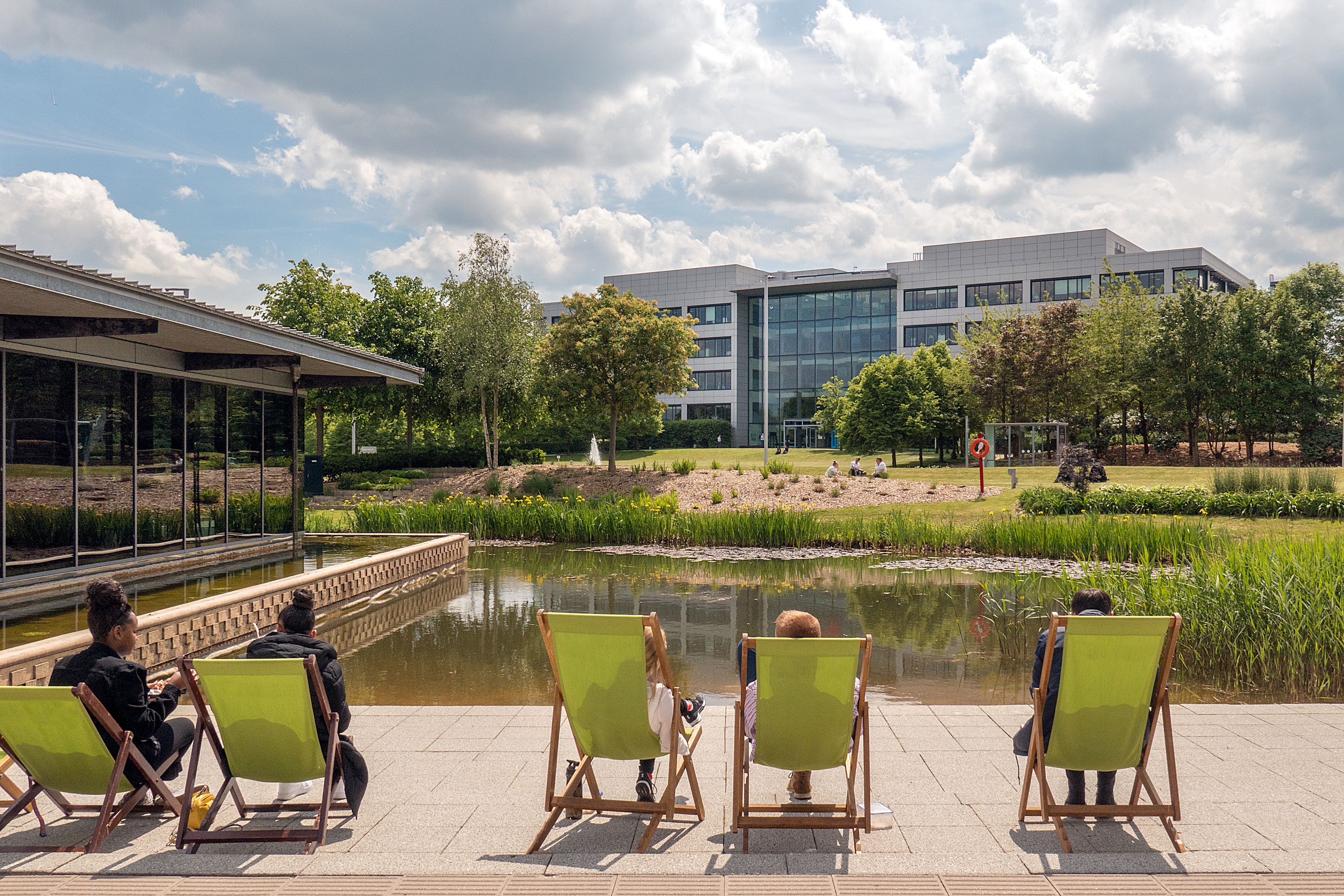
FACTORING WETLANDS INTO URBAN PLANNING POLICY
To successfully create and restore urban wetlands and offer many benefits to communities, we need supportive policies at all levels. These policies should make green and blue infrastructure standards compulsory and sustainable urban drainage systems a legal requirement. Local planning policies should emphasise the importance of access to nature. Specifically, they should focus on the benefits of having wetlands close to where people live and work, ensuring everyone has fair access to natural spaces.

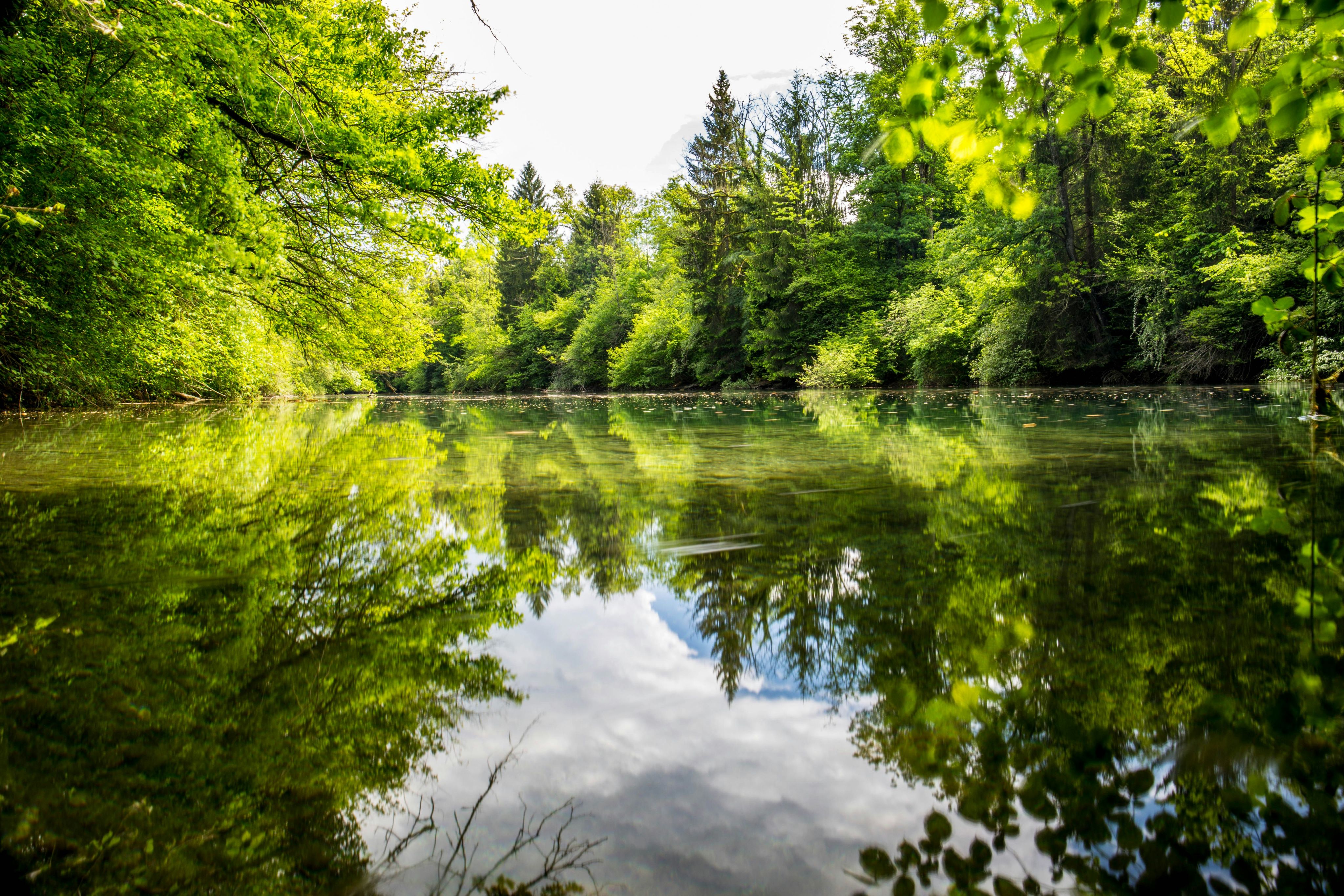
Mapping MOOD-BOOSTING URBAN wetland potential
Urban wetlands vary in scale. They include:
- Mini-wetlands at the individual property level
- Sustainable drainage systems (SuDS) and small ponds at the street level
- Restored streams and wildlife ponds at the neighbourhood level
- Park lakes, streams and ponds which provide natural space for whole towns and cities
Our wetland potential maps offer crucial insights into the varying demand for wetlands in urban areas. We calculated this demand based on neighbourhood flood vulnerability, existing levels of access to natural spaces, and the rates of mental health issues across urban areas. The data supports better informed decision-making and resource allocation.

Making SuDS a new
planning requirement would
deliver an estimated
£3bn in avoided flood damages.
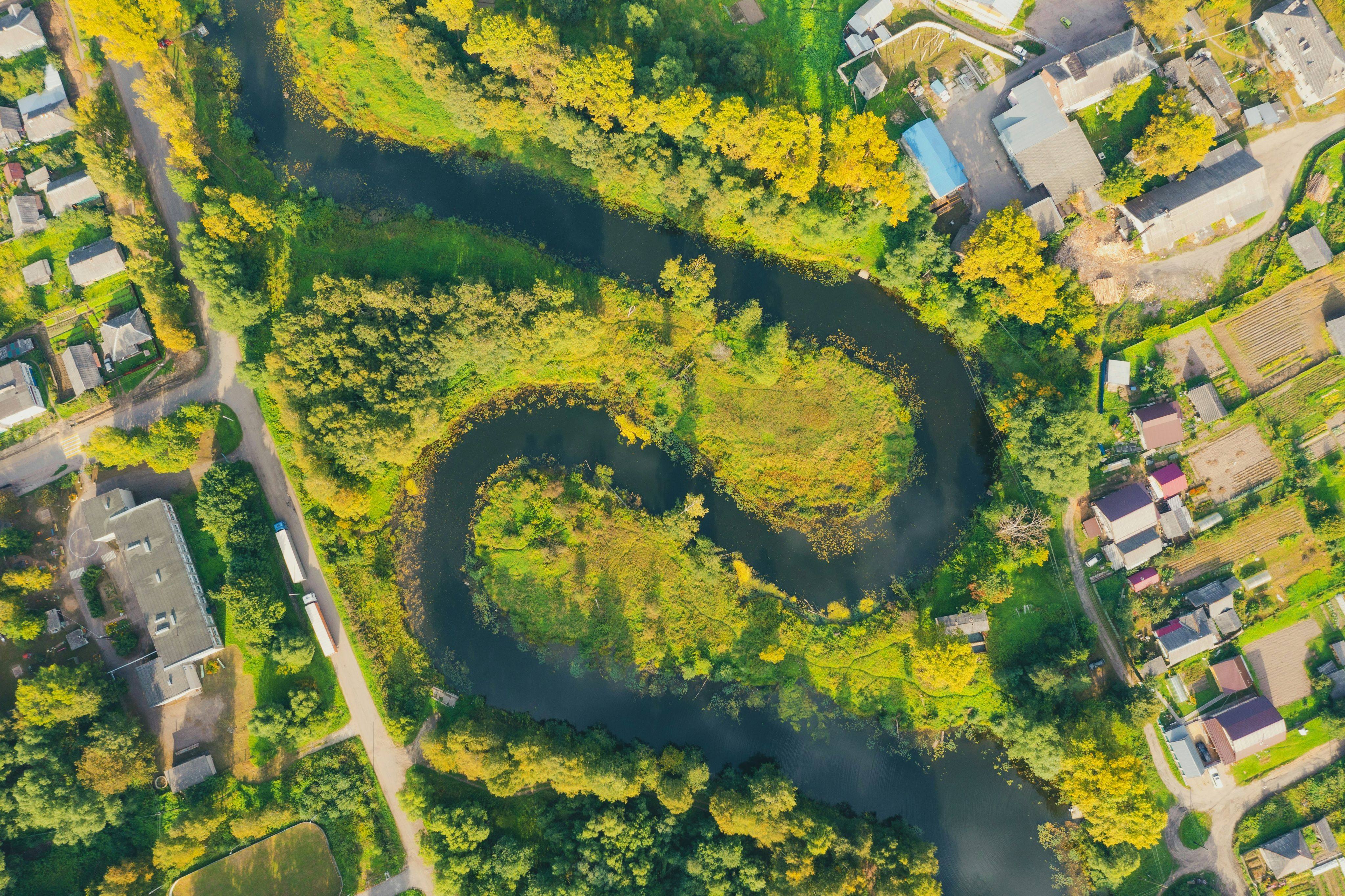
We created a map of the relative potential for wellbeing benefits that wetlands created in urban areas could provide to society.
The ranking is applied to census areas (LSOAs and Data Zones) where potential locations for urban wetlands were identified.
Users can view the wetland potential layer with the census area ranking to get a clear picture of the extent of potential and the level of demand for urban wetlands. With this information, you can start to identify regions where wetland potential and opportunities for maximising societal benefits overlap.
© WWT copyright and/or database right 2024. All rights reserved. Contains, or is derived from, information supplied by governmental and non-governmental organisations listed at https://www.wwt.org.uk/data-sources.
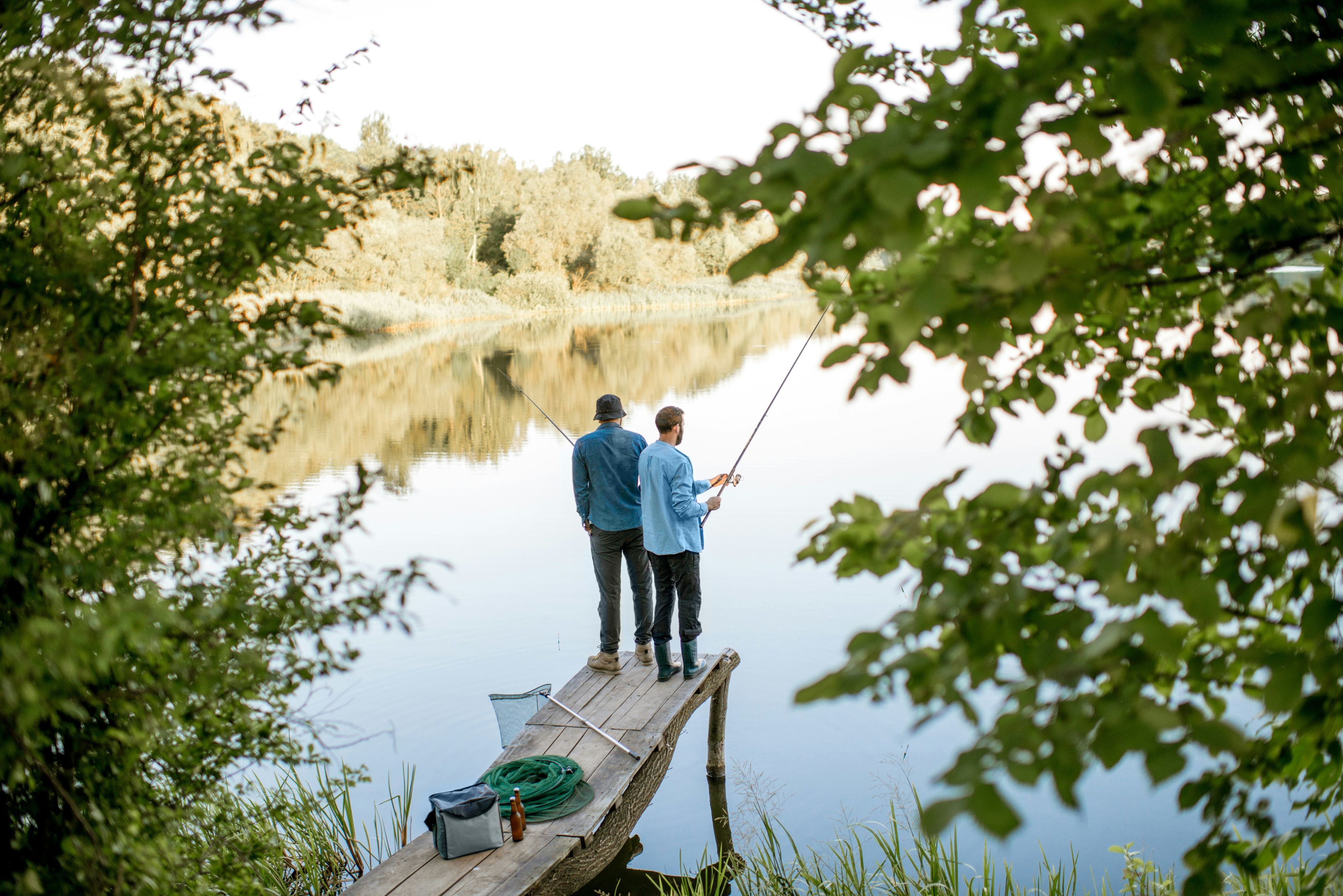

The economic potential of wetlands
The economic analysis by eftec valued the benefits of recreational opportunities, improved physical and mental health, temperature regulation and carbon storage.
Creating 25,000 hectares of urban wetlands, can provide significant benefits, valued at £5.3billion in Great Britain over 60 years.
The benefits are mostly public goods, including recreation and health improvements, which would be advantageous for public bodies like health care trusts, the NHS, and local authorities. Investing in wetlands will help these groups meet government sustainability goals and appraisal standards.




